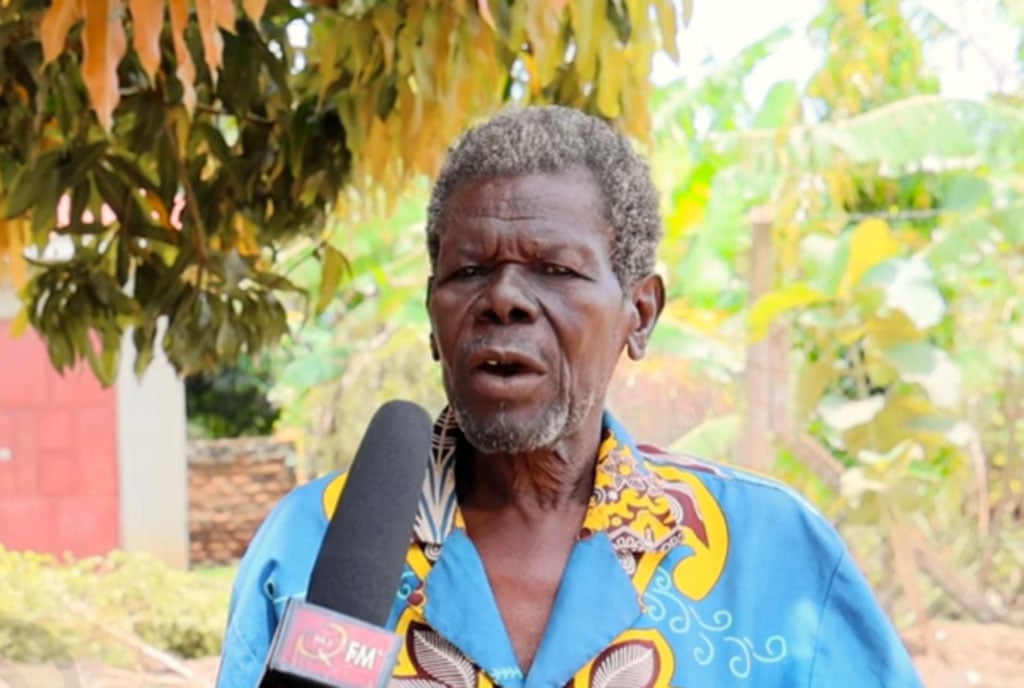Prime
Viktor Bout: the fuel behind African wars

Alleged global arms dealer Viktor “Moustache of Death” Bout was extradited to the United States on terrorism charges.
What you need to know:
African armed rebellions that Victor Bout is said to have fuelled
Civil war in Sierra Leone and Liberia
This war was waged by Revolutionary United Front in a bid oust Sierra Leone’s president, Joseph Momoh. The rebels were backed by Charles Taylor who used to mine and sell diamonds for weapons to use in the conflict. The war was marked for its grotesque acts where citizens of Sierra Leone had their arms cut off by rebels.
Rebellions in Congo
This includes a series of rebellions, first of Laurent Desire Kabila against Mobutu Sese Seko, and then, various armed groups against Mr Kabila’s government. In all these conflicts, Ugandan and Rwandan armies were involved.
Unita rebellion Angola
Jonas Savimbi, the leader of the National Union for the Total Independence of Angola (Unita), waged against the government, which was formed of former anti-colonialism movements, from 1975 to 2002 when he was cornered and killed with the help of Portuguese forces.
He was last week sentenced to a 25-year-jail term by an American court for apparently conniving with Colombian rebels to kill US soldiers, but in Africa, wherever diamonds and conflict appeared, Mr Viktor B’s trail was never far off.
If you love movies enough to keep tabs on what spills out of the factory of motion pictures that is Hollywood, every now and then, you should already have watched the 2005 action thriller, Lord of War. It features Nicholas Cage, who stars as Yuri Orlov, a Ukrainian businessperson whose trade is to supply guns, bullets, and all manner of ammunition to wherever and whomever needed them, none of it legal, of course.
However, that character had its roots in an actual human being, a heavy Russian guns trader with a thick bushy moustache and a dark mane of hair. Viktor Bout, now famously referred to as the merchant of death, is known to have supplied the arms that kept war and unrest flaring in not only the conflict hotspots of the world, but also, a little too close to home for comfort – allegedly here in Uganda.
He was last week sentenced to a 25-year-jail term by an American court for apparently conniving with Colombian rebels to kill US soldiers. His lawyers maintain he is innocent and that they will appeal the sentence.
It is, however, not for the crime he was arrested and convicted but rather his other exploits that Mr Bout becomes every reason worthy of note, especially for Ugandans.
From 2008, the year of his arrest, and stretching back 20 or so years, there have been numerous armed conflicts in all corners of Africa. And it is simply shocking to see the number of those to which the merchant of death is attached.
Uganda features prominently in Mr Bout’s dealings in Africa. It was used as a conduit for arms he ferried into conflict zones in West Africa, and, unnamed Ugandan individuals, plus Ugandan soldiers, are suspected of having had connections with Mr Bout.
Wherever diamonds and conflict appeared in Africa, Mr Bout’s trail was never far off. There were diamonds in Angola, DR Congo and Sierra Leone, all areas that hungrily fed on Mr Bout’s supply of guns and ammunition.
He is said to have supplied the National Union for the Total Independence of Angola (Unita) rebels in Angola, various rebel factions in the Congo, and, is accused of having collaborated with former Liberia president, Charles Taylor, who waged a murderous war in Sierra Leone, using diamonds to buy weapons. Mr Taylor is currently answering charges of crimes against humanity at the International Criminal Court. Both Mr Taylor and the late Jonas Savimbi’s Unita are to have paid for Mr Bout’s arms using diamonds.
A United Nations report from the year 2000 stated that individuals from Uganda and Rwanda, were dealing in illegally mined diamonds from the DR Congo and that they were connected to Mr Bout. The report says he had planned with officials from Rwanda to set up a diamond-cutting factory in the country, an allegation that the Rwandan government denied. The report stated that the Rwandan and Ugandan individuals offered military co-operation to Unita in this trade. Another UN report about the arms lord also highlights that Mr Bout frequently used Uganda as a conduit for arms he was ferrying especially to West Africa. He operated a camouflage airline company that masqueraded as a cargo air-transport outfit.
It is this, in liaison with other camouflage transport and business agencies that were run by his associates, which moved his merchandise around the world, at times under the cover of “technical equipment”.
In one such case, a consignment of sub-machine guns that was supposed to be sent back to Slovakia, where Mr Bout usually operated, was instead diverted to Liberia where a war was waging and where an international arms-trade embargo was already in place. When Ugandan officials caught wind of the act, they stopped a second consignment of the same weapons from heading to West Africa.
This raises questions over why Mr Bout’s associates would choose Uganda as the most convenient of all countries on the continent through which to smuggle weapons to Liberia. Could they have done so without a sense of security, say a highly placed official on the inside who would help clear their trade? Such questions and more still linger although there is little if any evidence to point to a specific Ugandan who dealt with the merchant of death.
But Mr Bout’s reach was way beyond Africa, stretching to Colombia, Afghanistan and Iraq. Mark Doyle, a journalist who has covered many conflicts in Africa, reported for the BBC that it became hard to apprehend Mr Bout, even with his very evident connections to criminals, because of his vast network of military connections, and, the fact that the US had been preoccupied with its war on terror.
Who is Mr Viktor B?
Viktor Bout is 45-years-old. He was born in current Tajikistan (then under the rule of the Soviet Union), although some sources say he was born in Ukraine. He is said to have started out his career in the early 1990s, after the fall of the Soviet Union, working in air transport.
One of the many UN reports about him say, he is usually referred to simply as Vickor B, because he has about five aliases. Mr Doyle reported that these aliases were Viktor Anatalojevitch Bout, aka, Butt, aka Bont, aka Buttee, aka Boutov, aka Sergitov Vitali. He carried five passports and is a mastered linguist, fluent in six languages.
He is married to a Ms Alla, whose father held a high post in the Soviet Union’s intelligence unit, the KGB. Mr Bout was himself an intelligence officer who was working in Africa as a military translator for the Soviet Union. When the empire collapsed, he picked up the trade of selling guns.
That is just an attempt at a description of the portrait that Mr Bout is, and it does not capture him in his entirety. He is like a thriller-novel character, walking straight out of the book’s pages to embrace you in real life. And it’s no wonder that his arrest, was similarly, thriller-novel-like; he was caught in a sting operation when American agents posing as Colombian rebels got him to agree to selling weapons to the rebels.




